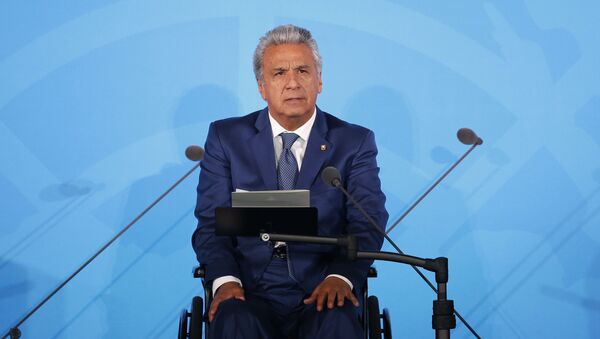The unrest was sparked by Moreno's austerity measures introduced as economic reforms, part of a condition of receiving a bailout loan package from the International Monetary Fund (IMF).
Late on Saturday, Moreno pledged to assess a decree that had ended fuel subsidies - a core reason for the protesters' disgruntlement - and to study the consequences of the controversial bill more closely to ensure the law could benefit local communities.
Por la paz y el futuro de nuestro país hemos decidido mantener el toque de queda en Quito hasta próximo aviso; además, revisaremos el Decreto 883 conforme al pedido de organizaciones indígenas y sectores sociales para asegurar que los recursos lleguen al campo. #LaPazSeRecupera
— Lenín Moreno (@Lenin) October 13, 2019
"We will review decree 883 in accordance with the request of Indigenous organisations and social sectors to ensure that resources reach the countryside", Moreno said. Moreno added that the curfew in the capital city of Quito would remain in place.
Moreno earlier refused to scrap his imposed austerity measures, insisting on any means necessary to slash the country's debt to about $1 billion by 2020.
The rallies - initially staged by transport companies - have evolved into widespread protests featuring many economic and political demands, attracting various social groups, including farmers, students, and indigenous peoples in Ecuador.
Ecuador's economy is suffering from a heavy debt burden of some $3.6 billion, which ballooned under the previous leadership.


